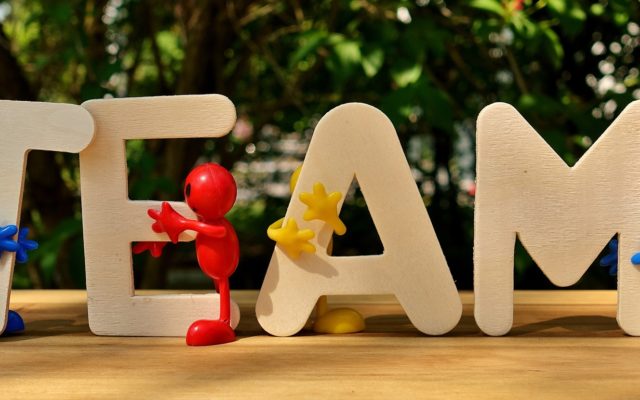Talking about collaboration is popular nowadays – I’ve written about this before – so an article entitled The Collaboration Curse, arguing that ‘the fashion for making emploryees collaborate has gone too far’ caught my attention.
I like the philosophy behind the push for more collaboration. I genuinely believe that individuals, businesses and the world get better results when conversations are continually happening, when ideas are allowed to grow organically and where tension between people and groups leads positively to innovation. Without collaboration, relationships become transactional, and that lack of collaboration has negative effects:
- time is wasted on jobs that nobody wants to do and nobody wants done
- the only ideas allowed to progress are those made by the individual with the loudest voice
- individuals and groups with differing outlooks become polarised and bitter
- innovation is hampered
But this article raised some good points. The global push for collaboration forces certain people into unhelpfully uncomfortable settings that stop them from thinking well in the first place, interrupt them mid-task, leading to under-developed thinking and inefficient working practices, and lead to people resenting meetings and online conversations, making them further withdraw.
I’m not convinced this is simply a case of people with a preference for introversion reacting to having a comfort blanket of silence being removed. Everyone needs focus time at some point, and meetings and online conversations can certainly waste time, but let’s not throw the baby out with the bathwater.
Collaboration is a very powerful tool, and it’s not the answer to every business problem. A more mature approach perhaps needs to be taken, forcing people to continuously collaborate while also developing strong habits around focus time and avoiding distractions.
And maybe this is as simple as acknowledging that everybody’s different, and those differences are to be valued.
…organisations need to do more to recognise that the amount of time workers have available is finite, that every request to attend a meeting or engage in an internet discussion leaves less time for focused work and that seemingly small demands on people’s time can quickly compound into big demands. Helping people to collaborate is a wonderful thing. Giving them the time to think is even better.
Article by channel:
Everything you need to know about Digital Transformation
The best articles, news and events direct to your inbox
Read more articles tagged: Collaboration, Culture, Featured







